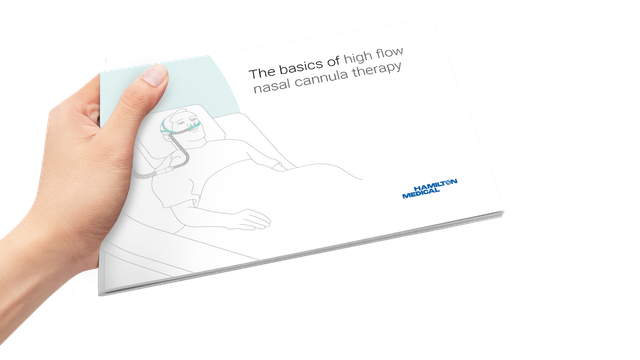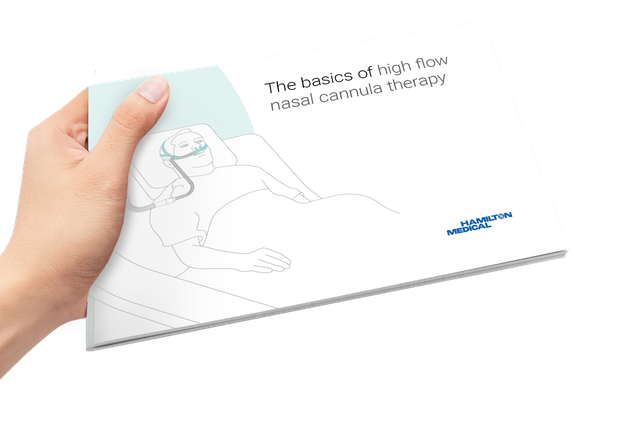Footnotes
- A. Also known as high flow oxygen therapy. This terminology can be used interchangeably with high flow nasal cannula therapy.
Are you looking to learn more about high flow nasal cannula therapy (


In "The basics of high flow nasal cannula therapy" you will learn about:
In the e-book we focus on both high flow nasal cannula therapy for pediatrics and adults. We also cover topics such as how does hfnc work, how to set the nasal cannula flow rate, the difference between low flow and high flow, when to consider high flow nasal therapy, the recommendations for HFNC, and its physiological effects, choosing the right cannula size and monitoring the effectiveness of HFNC. At the end a self-test is included to check your knowledge.
If you are involved in respiratory care, our e-book is an essential reference. Whether you are a critical care nurse, respiratory therapist, physician, or any other healthcare professional, you will gain valuable insights into HFNC.
Download your free copy below and discover the basics of high flow nasal cannula therapy for your daily clinical practice.